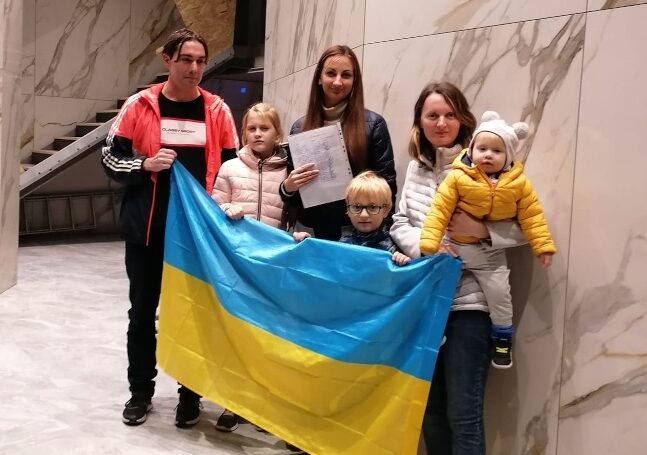Tanya Gurska and Liza Tolmachevska, two mothers from Odessa, who had to leave their places of origin with their children at the beginning of the war, describe the journey that brought them to Constanța, how they interacted with state authorities, with the health system of Romania, who offered them help along the way and the experiences they lived in the port city, according to a report by Info Sud-Est. The war in Ukraine has displaced millions of refugees from the country, most of them women and children. Romania is a major transit point for Ukrainians fleeing Russian aggression and torture that began on 24 February.
The two families’ accounts begin similarly: the attacks on Odessa began on the first day of the war. When it became clear that the situation was too dangerous, people from the area started evacuating the region. Since the border with the Republic of Moldova was very close, it was a major destination for refugees.
- “On February 28, my father helped us reach the border with Moldova, in Palanca. He took us to the border and from there we walked to meet the volunteers. The road was long on foot and it was very cold, but we met many Moldovans who came to help us, offering us food, accommodation and everything we needed. I stayed there for a day, then I went to Romania with the help of volunteers. I came here because the company my work for husband has points of work in Romania, they helped us meet Romanians who helped us find a hotel in Mamaia,” said Liza.
Tanya, on the other hand, came to Constanța with her three children due to old family ties to the region:
- “We stayed in Moldova for two days, volunteers invited us to their home, then we got tickets directly to Constanța. The reason I came here is that my grandfather was born in 1928 in Ismail, which was then Romanian territory, and he lived with his family near Constanța, in Eforie Sud, so this area seemed good to me, because I knew my family lived here before.”
While Tanya and Liza left Odessa in search of safety, their life partners and the rest of their families were forced to stay due to circumstances.
- “My husband couldn’t have left his job. We can get by because he’s still working, because I lost my job and he couldn’t leave anyway, he’s in the category of men who can’t leave the country,” explained Liza, referring to the martial law imposed in Ukraine at the beginning of the war, which prohibits men between the ages of 18 and 60 from leaving the borders of the country.
In Tania’s case, the situation is a bit different, with her husband choosing to stay behind to help with the evacuation efforts:
- “Since we have three minor children, my husband could have been exempt from the law, but he chose to stay in the country and for a few more weeks he helped people who wanted to leave. Now he works with a small local NGO, he does what he can, while continuing his work as a repairman, a handyman, but because of the war people no longer have the same material possibilities and it is much more difficult to find work».
Read the full article at Southeast information.


